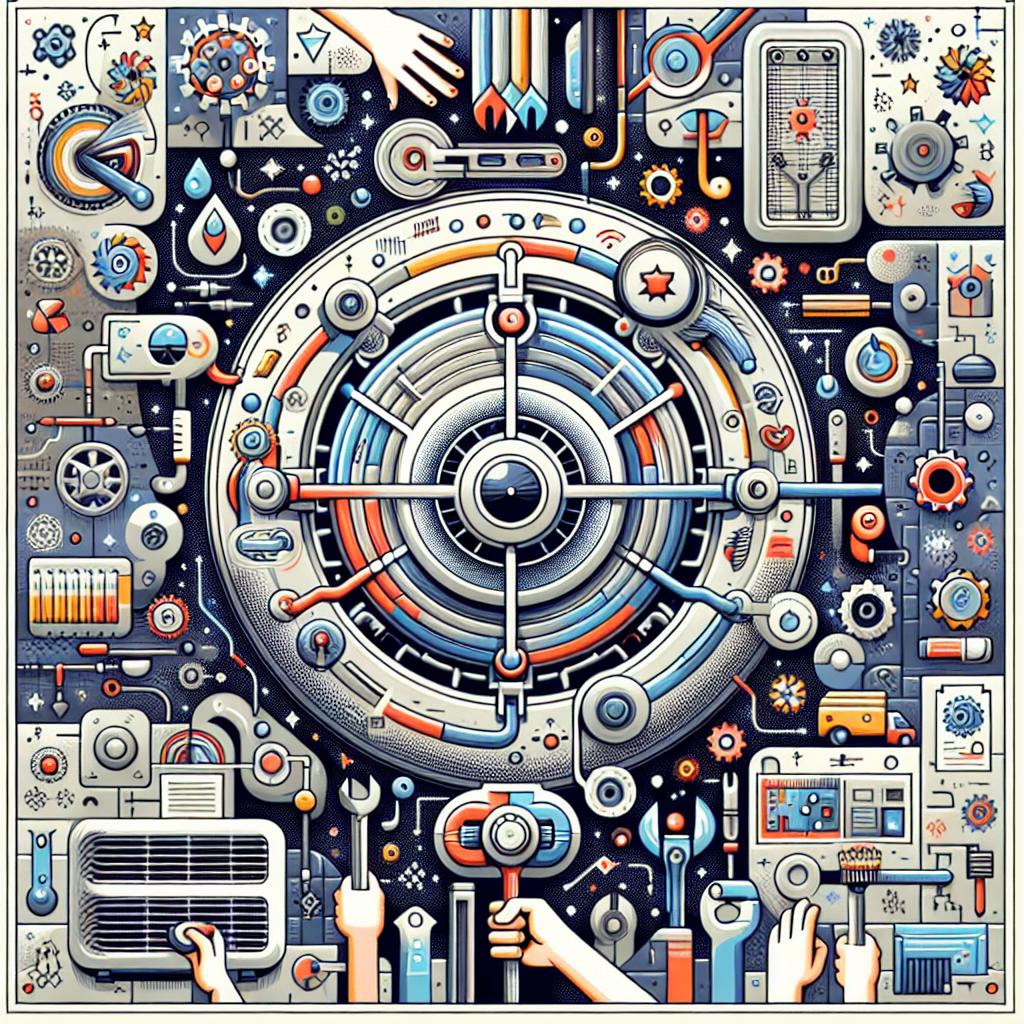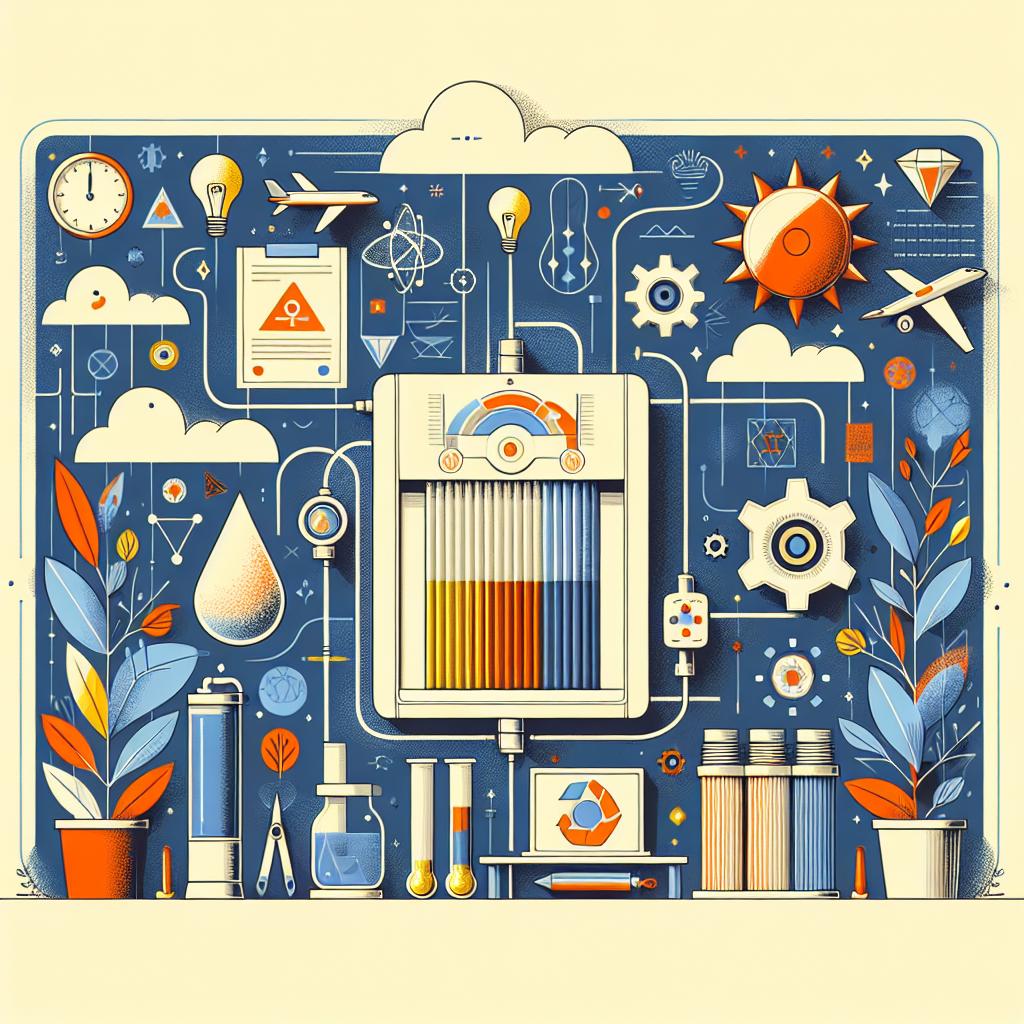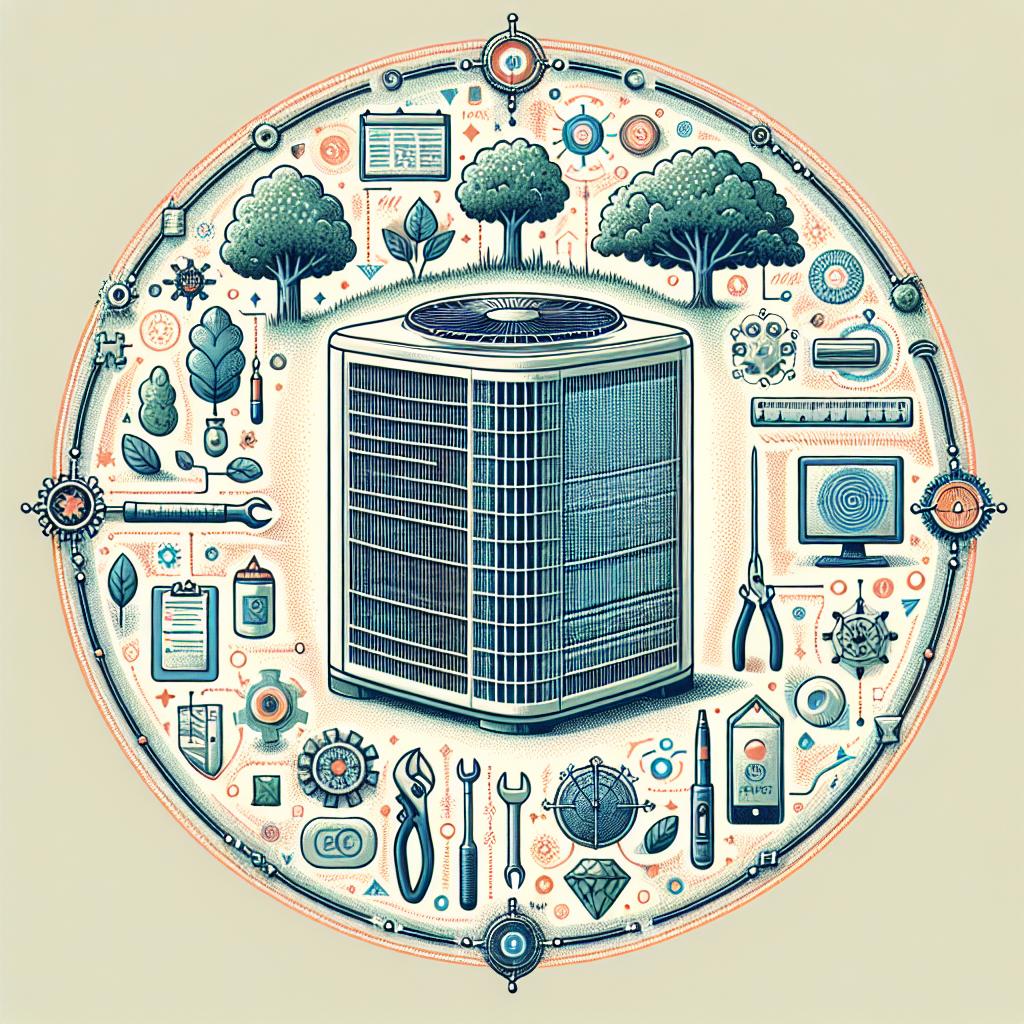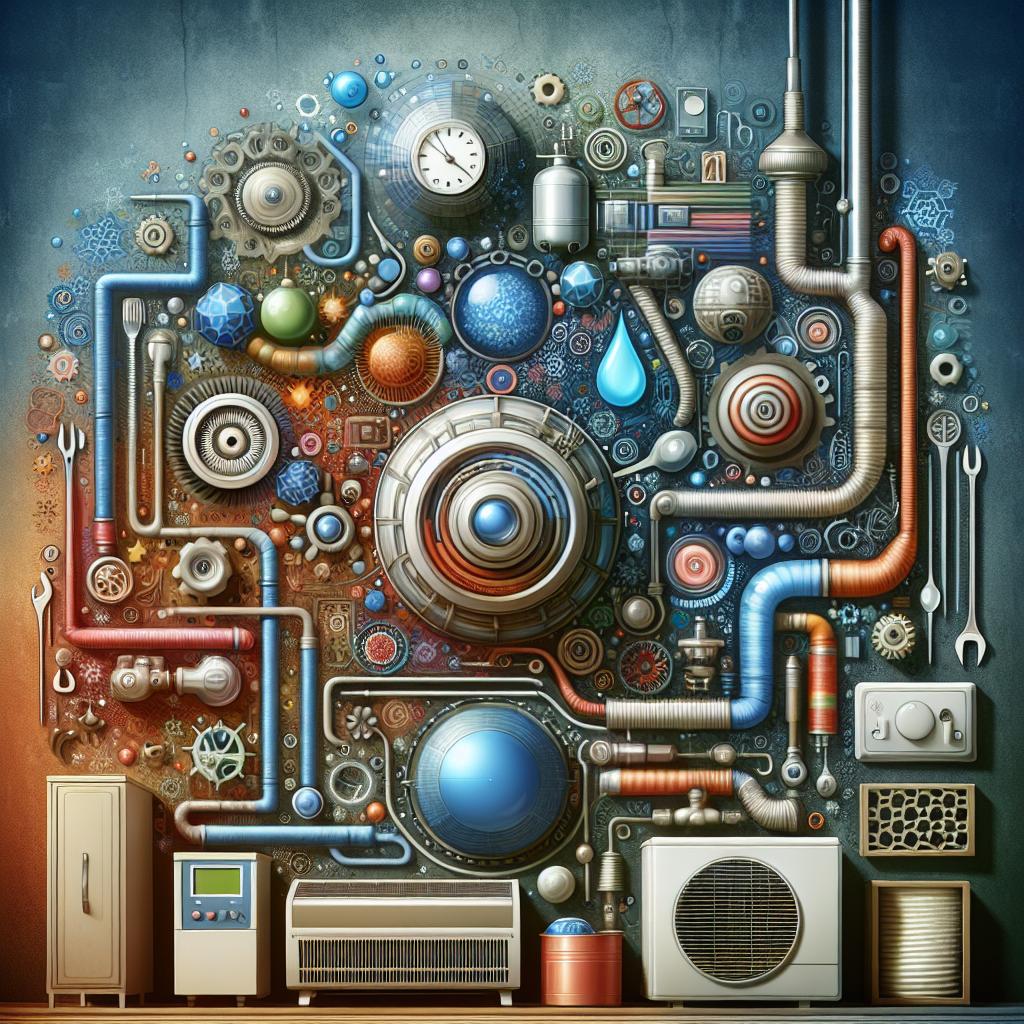When the temperature outside begins to soar, or conversely, when winter settles in for a long stay, our reliance on heating, ventilation, and air conditioning (HVAC) systems comes into sharp focus. Yet, as we enjoy the cozy climates created by these mechanical marvels, few pause to consider the essential upkeep required to keep them running efficiently. Just as a musical instrument needs regular tuning to produce stunning melodies, HVAC systems demand systematic maintenance to function at their best. In this article, we will explore the vital tasks that comprise HVAC maintenance—from the filters and coils to the often-overlooked ductwork—illustrating the importance of proactive care in ensuring a comfortable and healthy indoor surroundings.Join us as we delve into the heart of HVAC maintenance, uncovering the practices that can extend the lifespan of your system and enhance its performance.
Essential Components of HVAC Systems That Require Regular Attention
Keeping HVAC systems running efficiently requires regular attention to several critical components. Firstly, air filters should be inspected frequently and replaced as needed, as clogged filters can obstruct airflow and reduce efficiency.Another vital part to focus on is the refrigerant levels; improper levels can lead to inadequate cooling and increased energy bills.Additionally, thermostats must be checked to ensure they are functioning correctly, as inaccuracies can cause discomfort and overwork the system.
Other components that need routine maintenance include the condensing unit, which should be cleared of debris and inspected for wear, and the ductwork, to ensure air is flowing freely without leaks.A more detailed overview of these components can highlight their importance:
| Component | Maintenance Task | Frequency |
|---|---|---|
| air Filters | Inspect and replace | Monthly |
| Refrigerant Levels | Check and refill if needed | Seasonally |
| Thermostats | Test functionality | Annually |
| Condensing Unit | Clear debris and inspect | Biannually |
| Ductwork | Inspect for leaks | Every few years |

The Importance of Filter Maintenance for Enhanced System Efficiency
Regular maintenance of filters is crucial for maximizing the efficiency of HVAC systems. Dirty or clogged filters can disrupt airflow, causing the system to work harder and consume more energy, which leads to increased utility bills. additionally,the strain on the system may result in mechanical failures,resulting in costly repairs and downtime. By ensuring that filters are cleaned or replaced on a routine basis,homeowners can maintain optimal airflow and enhance overall system performance. Keeping tabs on filter maintenance not only prolongs the life of the HVAC system but also creates a healthier indoor environment by trapping dust, allergens, and other contaminants.
To establish a successful filter maintenance schedule, consider the following recommendations:
- Change or clean filters every 1-3 months, depending on the type of filter and usage.
- Inspect filters regularly for any signs of dirt accumulation.
- Use high-efficiency filters to capture more particles and improve air quality.
- Keep a record of filter changes to help track maintenance history.
Implementing these steps ensures that HVAC systems run efficiently, providing comfort while reducing operational costs. Consistent filter maintenance is key to achieving reliability and durability in your heating and cooling installations.

Preventive practices to Prolong the Lifespan of Your HVAC Unit
To maintain the efficiency and longevity of your HVAC system, regular preventive practices are essential. One key aspect is changing or cleaning the air filters. Dirty filters restrict airflow and can cause your system to work harder, leading to increased energy costs and potential damage. It’s recommended to perform this maintenance every 1-3 months, depending on usage and filter type. Additionally, cleaning the condenser and evaporator coils can significantly improve efficiency. Dust and debris buildup on these components can impede heat exchange, resulting in a less effective system.
Another crucial preventive practice is inspecting and sealing ductwork. Leaks in ducts can cause air loss and reduce system performance.scheduling a professional inspection annually can help identify and seal any leaks, ensuring that conditioned air reaches its intended spaces. It’s also beneficial to book regular professional tune-ups,which include checking refrigerant levels,inspecting electrical connections,and lubricating moving parts. These thorough inspections not only enhance performance but can also prevent unexpected breakdowns that lead to costly repairs.

Common Issues to Identify During a Routine HVAC Checkup
During a routine HVAC checkup, there are several common issues that technicians are trained to identify and address. First and foremost, dirty filters can significantly reduce airflow and efficiency, leading to increased energy costs. Regular inspection allows for timely replacement or cleaning of these filters, ensuring optimal performance. Additionally, leaks in ductwork can compromise system efficiency, leading to wasted energy and uneven heating or cooling throughout the space. Detecting these leaks early can save homeowners both money and discomfort.
Another critical aspect to check is the thermostat functionality. An improperly calibrated thermostat can cause the system to run longer than necessary or not engage at all, impacting overall climate control. furthermore, checking for unusual noises and vibrations during operation can reveal underlying mechanical issues with the unit. Paying attention to any signs of wear or corrosion on components like the compressor and condenser is also crucial,as these can indicate the potential for more serious failures down the line. A proactive approach during maintenance can prevent costly repairs later on.
Q&A
Q&A: Essential HVAC Maintenance checklist for Optimal Performance
Q1: Why is HVAC maintenance important?
A1: HVAC maintenance is essential for ensuring the efficiency and longevity of your heating, ventilation, and air conditioning systems.Regular maintenance reduces the risk of breakdowns, enhances energy efficiency, and promotes healthier indoor air quality by addressing potential issues before they become major problems.
Q2: How frequently enough should I perform HVAC maintenance?
A2: Ideally, HVAC systems should be serviced at least once a year, with separate checks for heating and cooling units.Scheduling maintenance before the peak season—before winter for furnaces and before summer for air conditioners—can definitely help your system operate effectively when you need it most.
Q3: What specific tasks should be included in HVAC maintenance?
A3: An effective HVAC maintenance routine includes a variety of tasks, such as:
- Changing air filters: This should be done every 1-3 months to ensure optimal air flow and indoor air quality.
- Cleaning coils and fins: Both evaporator and condenser coils should be cleaned to remove dirt and debris that can hinder performance.
- Checking refrigerant levels: Ensuring the correct refrigerant charge is vital for system efficiency.
- Inspecting and cleaning ducts: Regularly checking ducts for blockages and cleaning them helps improve air quality and system efficiency.
- Testing the thermostat: Make sure your thermostat is functioning correctly and calibrated accurately for better temperature control.
- Inspecting electrical components: check all electrical connections and components for wear and ensure they function properly.
- Lubricating moving parts: Ensuring that moving parts are properly lubricated can reduce friction and wear.
Q4: Can I perform HVAC maintenance myself?
A4: Some basic tasks, like changing air filters and cleaning vents, can be done by homeowners. though, more complex tasks such as checking refrigerant levels, cleaning internal coils, and inspecting electrical components should be performed by trained professionals to ensure safety and compliance with local codes.
Q5: What signs indicate that my HVAC system needs maintenance?
A5: Look out for signs like uneven cooling or heating, strange noises during operation, increased energy bills, or reduced airflow. If your system cycles on and off frequently or if you notice an unusual odor when it operates, it’s time to call in a professional.
Q6: What are the benefits of scheduling professional HVAC maintenance?
A6: Scheduling professional maintenance checks not only ensures tasks are performed correctly but also allows trained technicians to identify potential issues early, which can save you from costly repairs down the road. additionally, professional maintenance frequently enough includes a extensive cleaning and tuning of your system, enhancing its performance and efficiency.
Q7: How can regular maintenance affect my energy bills?
A7: A well-maintained HVAC system operates more efficiently, which can lead to meaningful savings on energy bills. By keeping your system clean and ensuring it operates optimally, you can reduce wasted energy and lower your monthly costs.
Q8: Is there a best time to schedule HVAC maintenance?
A8: The best times for HVAC maintenance are typically in the spring for air conditioning systems and in the fall for heating systems. This helps ensure that your HVAC is in peak condition before the demands of seasonal use increase.
Q9: Can I rely on a warranty to cover HVAC issues?
A9: While many warranties cover parts and repairs, most require regular maintenance to remain valid. Be sure to keep records of maintenance performed to avoid voiding your warranty coverage.
Q10: what should I look for when choosing an HVAC maintenance provider?
A10: Look for licensed and insured HVAC technicians with good reviews and references. A reputable company will provide transparent pricing, detailed services offered, and warranties on their work, ensuring you can trust them to maintain your system effectively.
by staying proactive with your HVAC maintenance,you can enjoy a comfortable,efficient,and healthy living environment all year round.
Final Thoughts
As we conclude our exploration of essential HVAC maintenance practices,it’s clear that regular upkeep is not merely a luxury—it’s a necessity for ensuring your system operates efficiently and reliably. From changing filters and cleaning coils to checking refrigerant levels and inspecting ductwork, each task contributes to the longevity of your heating and cooling systems. By embracing these maintenance routines, you not only enhance home comfort but also promote energy efficiency, ultimately benefiting both your wallet and the environment.
Remember,the investment in maintenance today translates to peace of mind tomorrow.So, take the reins of your HVAC care; schedule those check-ups, stay informed, and breathe easy knowing your home is in good hands.After all, a well-maintained HVAC system is not just about comfort—it’s about creating a safe and inviting sanctuary for you and your loved ones. Hear’s to a future of efficiency, reliability, and comfort!

